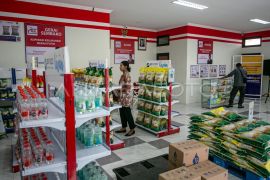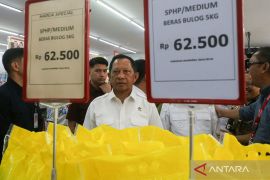Asked after the closing of the International Conference and Call for Paper (ICCAP 2018) here on Thursday, the minister pointed out that consumer goods such as soap, shampoo, cosmetics and kitchen equipment which can mostly be produced domestically, can be substituted from domestic products.
"The amount of sales is not large, and there is a substitution so the impact on inflation will not be too large. So now is just a matter of switching," Lukita remarked.
He assessed that the increase in PPh tariff on imported consumer goods will not have an impact on inflation due to the lack of availability of goods that can cause price changes. This is because these consumer goods still have substitutes in the country.
The government officially implements a policy of controlling the import of consumer goods through raising the import tax rate (PPh) on 1,147 tariff posts as a strategy to overcome the current account deficit.
Of the 1,147 commodities adjusted to their import PPh rates, 218 commodities rose from 2.5 percent to 10 percent. These commodities are a class of consumer goods, most of which have been produced domestically, for example electronic goods (air conditioners, lamps) and daily necessities.
The trade minister emphasized that the import PPh tariff on imported goods used as raw materials had no change. Import PPh tariffs for 57 commodities were decided to remain 2.5 percent because they were identified as having a large role to supply raw materials so that their policies were not changed.
As is known, the application of the new import PPh tariff regulated in the finance minister`s regulation (PMK) has been signed and will be effective seven days later.
Lukita added that the influence of this policy is expected to begin to be seen in the September trade balance report which will be released by the Central Statistics Agency in October.
Reporting by Mentari Dwi Gayati
Editing by Otniel T, Bustanudin
Reporter: Antara
Editor: Suharto
Copyright © ANTARA 2018












